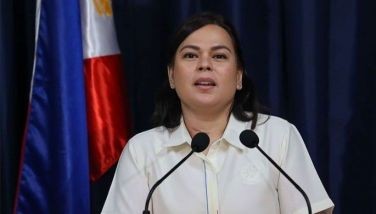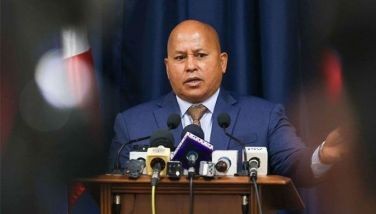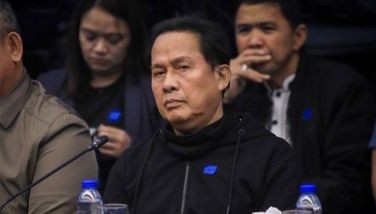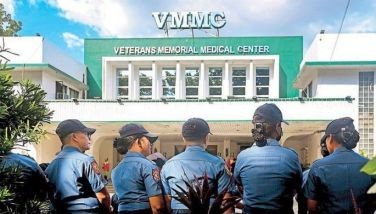50% of Pinoys don’t believe ‘tokhang’ list – SWS
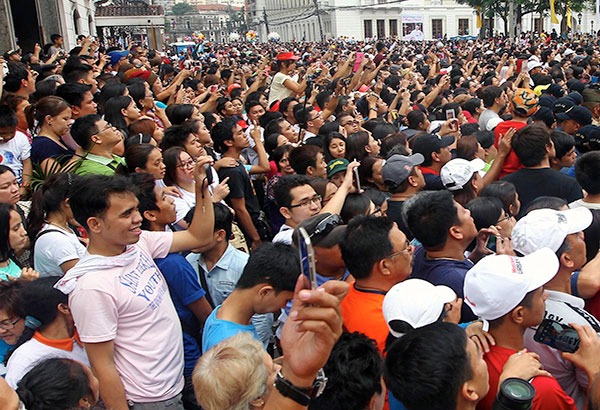
The poll, conducted from Sept. 23 to 27, found 25 percent of adult Filipinos saying they know someone summoned for Oplan Tokhang. File
MANILA, Philippines — Half of Filipinos believe “none” or “not all” of the persons summoned for “Oplan Tokhang” are drug addicts or pushers, according to the latest Social Weather Stations (SWS) survey.
The poll, conducted from Sept. 23 to 27, found 25 percent of adult Filipinos saying they know someone summoned for Oplan Tokhang.
The figure is highest in Metro Manila at 31 percent, followed by balance Luzon and Mindanao, both at 25 percent and the Visayas at 22 percent.
Among those who have personal knowledge of anyone summoned for Oplan Tokhang, 49 percent say “none/not all of them” are drug addicts/pushers, 36 percent say “all of them” and 14 percent say they do not know.
Meanwhile, 47 percent of Filipinos who know someone summoned for Oplan Tokhang believe “not all are drug addicts and pushers,” two percent answered “none are drug addicts and pushers” and 36 percent answered “all are drug addicts and pushers.”
The other 14 percent say they don’t know, while a marginal 0.6 percent did not give an answer.
The proportion of those who say not all of the persons summoned for Oplan Tokhang are drug addicts and pushers is highest in Metro Manila at 50 percent.
One percent of Metro Manilans say “none of them,” 33 percent say “all of them” and 16 percent say they don’t know.
In balance Luzon, 49 percent say “not all of them,” only one percent say “none of them,” 33 percent say “all of them” and 16 percent say they don’t know.
In the Visayas, 48 percent say “not all of them,” five percent say “none of them,” 37 percent say “all of them” and 11 percent say they don’t know.
It is lowest in Mindanao, with 41 percent saying “not all of them” are drug addicts and pushers, three percent saying “none of them,” 43 percent saying “all of them” and 13 percent saying they don’t know.
The non-commissioned survey used face-to-face interviews of 1,500 adults, 18 years old and above, nationwide.
Caution on PDEA-led drug war
Former human rights chief Loreta Ann Rosales yesterday said it is high time the police are stripped of their duty to implement the brutal war on drugs, but cautioned against possible abuses, this time by the country’s lead drug enforcement agency.
In a press conference at the Shrine of Our Lady of Grace Parish in Caloocan City, Rosales called President Duterte an “onion-skinned dictator” who has no regard for human rights.
“President Duterte wrongfully directed the Philippine National Police to lead the operations, he is the one accountable for that,” Rosales said.
She welcomed the President’s move to strip the police of their mandate to implement the drug war, transferring it instead to the Philippine Drug Enforcement Agency (PDEA), which Rosales said is the lawful enforcement agency in drug operations.
But she cautioned against possible abuses in the PDEA-led war on drugs.
“If the PDEA commits warrantless arrests, kills persons, then they should likewise be investigated fully and comprehensively,” Rosales said as she urged the public to join a mobilization dubbed “National Healing Walk” on Nov. 5 in front of EDSA Shrine.
Rosales also slammed the Duterte administration for treating drug dependents like criminals, instead of patients who need help and treatment.
She called for accountability on the police for violating rights of the accused in the drug war, even as it would no longer lead the narcotics crackdown.
“The whole drug war is a major catastrophic debacle. It certainly has not helped resolve the problem of drug abuse,” Rosales said.
Lea Calano, a member of Youth Resist, also urged the public to join the EDSA mobilization to call for justice for her cousin Jomar Mondito, 27, who was slain in February this year.
“Hindi na nga ako umuuwi sa amin dahil sa nangyari, dahil sobrang natatakot na ako, lalo na pamilya ko (I don’t go home anymore because of what happened, because I’m scared for myself and for my family),” Calano said, wiping away tears.
Although the motive remains unknown, Calano said witnesses said her cousin was on his way home from the market in Novaliches when plainclothesmen took him.
Jomar’s body was later found in Sauyo and bore strangle marks and other signs of torture before he was shot dead.
“Walang paghilom kung walang mananagot (There is no healing if no one will be held accountable),” Calano said. – With Marc Jayson Cayabyab
- Latest
- Trending















